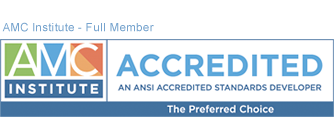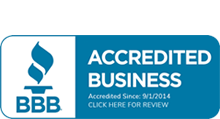Tips for Navigating the Fundraising Maze Part II: “Doing Well while Doing Good”
Robert O. Patterson, JD
CEO/ Principal
The Center for Association Resources, Inc.
American corporations have fully embraced the “doing well while doing good” giving concept. Cause-related marketing is quickly becoming the primary way that businesses express their social responsibility. The added advantage is that consumers seem to really like it, especially moms and millennials. Research continues to suggest that consumers like buying cause-related products.
According to the latest Cone Cause Evolution Study, 95% of moms find cause marketing acceptable, and 9 out of 10 want to buy a product that supports a cause. They are also more willing to switch brands (93% vs. 80% average) in order to support a cause. Moms purchased more cause-related products in the past year than any other demographic (61% vs. 41%).
Not far behind are millennials (18-24 years old), who also do their shopping with causes in mind. Ninety-four percent of this age group finds cause marketing acceptable (vs. 88% average), and more than half (53%) have purchased a product benefiting a cause this year.
What is cause-related marketing?
Although the popularity of cause-related marketing has exploded in recent years, it is a relatively young concept that began in the early 1980s. American Express pioneered the concept when they joined with the nonprofit group that was raising funds to restore the Statue of Liberty. The results are legendary: the Restoration Fund raised over $1.7 million, American Express card use rose 27% and new card applications increased 45%. All this was accomplished within a short three-month campaign.
Everyone involved was a winner…the nonprofit organization received needed funds, and American Express increased sales of its product and achieved a reputation for social responsibility. American Express even trademarked the term “cause-related marketing.”
The process begins with a corporate entity and a nonprofit agreement to raise money for a particular cause. The company expects to build awareness, grow its brand within a particular demographic, or sell more products by enjoying the “halo” affect of being associated with a respected nonprofit or cause. The nonprofit organization benefits both financially and through a higher public profile as a result of its corporate partner’s marketing efforts.
Who benefits?
The process begins with a corporate entity and a nonprofit agreement to raise money for a particular cause. The company expects to build awareness, grow its brand within a particular demographic, or sell more products by enjoying the “halo” effect of being associated with a respected nonprofit or cause. The nonprofit organization benefits both financially and through a higher public profile as a result of its corporate partner’s marketing efforts.
Is cause-related marketing different than corporate philanthropy and sponsorship?
Yes, there is a difference. Corporate philanthropy is realized through direct monetary gifting, which is often made through the corporation’s own foundation. These donations are usually for a particular program that the nonprofit organization will operate and can be of short or long duration.
Corporate sponsorship is closer to cause-related marketing in that the corporation gives the nonprofit organization money to hold an event or other time-limited activity. The funds usually come from the marketing budget and the corporation expects a certain amount of exposure for their support (“share of eyes”, “share of heart”, or “share of wallet”, etc.).
What about the recession?
Consumers have been undaunted by the recession in their belief that companies should support causes at the same level or higher during an economic downturn (81% according to the Cone Study). Furthermore, nearly two-thirds (64%) think that companies did well in responding to social and environmental issues during the recession.
Consumers emerged from the recession with their desire to shop with causes in mind fully intact:
- 88% say it is acceptable for companies to couple a cause or issue with their marketing
- 85% have a more positive image of a product or company when it supports a cause they care about; and,
- 80% are likely to switch brands, similar in price and quality, to one that supports a cause.
The lesson for nonprofit organizations and companies is that cause-related marketing is more popular than ever and should be considered as part of your fundraising (or giving) strategy.
The Center for Association Resources, an AMC Institute accredited association management company, provides clients comprehensive management services including: Association Management, Project Management, Membership Development and Management, Survey Research / Member Needs Assessment, Financial Management, Grant Development and Management, Leadership Development, Certification Program Development and Management, Government Affairs and Legislative Monitoring, Meeting Planning and Management, Marketing Strategy, Policies and Procedures Development, and other customized services. Our experienced teams, proven processes, and technology are designed to effectively manage and grow organizations. For more information, visit www.association-resources.com or call (888) 705-1434.







